Uhnder The Radar: Digital Code Modulation
Manju Hegde
CEO and Co-Founder, Uhnder
|
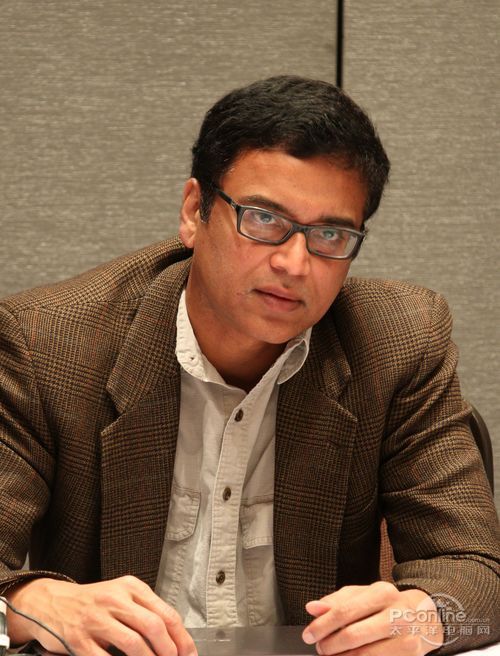
|
About the Speaker
Manju Hegde founded Uhnder in 2015 with Curtis Davis to develop disruptive technologies for autonomy in mobility. Uhnder is delivering the industry’s first digital automotive radar using a combination of advanced CMOS and Digital Code Modulation (DCM) technology. Uhnder’s approach and technology have excited the automotive industry which it promises to transform by changing the way radars work and significantly improving performance with the additional benefits of smaller size, lower power and lower cost.
Prior to Uhnder, Hegde has held leadership roles at AMD, NVIDIA, Celox Networks and Ageia Technologies. Ageia was a major physics processing chip manufacturing and middleware company that he cofounded with Davis in 2002 and led as CEO until Ageia was acquired by NVIDIA in 2008, where Ageia’s technology, PhysX, was adopted into NVIDIA’s entire GPU product line.
Hegde has published over a hundred and fifty technical papers, is a co-inventor on many patents, and often speaks at conferences and industry tradeshows. He has extensive professional and academic experience including 15 years of entrepreneurship wherein he co-founded 3 semiconductor companies as well as 17 years as a university professor in Electrical Engineering with his last tenure at Washington University in St. Louis.
Hegde received a Ph. D. from the University of Michigan, Ann Arbor, in Computer Information and Control Engineering, and a Bachelor's degree from the Indian Institute of Technology, Mumbai, in Electrical Engineering.
Deep Learning for Perception in
Autonomous Vehicles
Sepp Hochreiter
Head of Institute for Machine Learning, the LIT AI Lab and the AUDI.JKU deep learning center
|
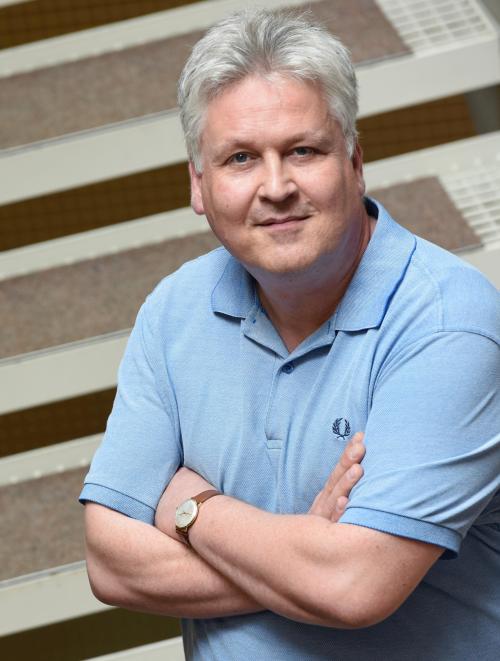
|
About the Speaker
Sepp Hochreiter is heading the Institute for Machine Learning, the LIT AI Lab and the AUDI.JKU deep learning center at the Johannes Kepler University of Linz and is director of the Institute of Advanced Research in Artificial Intelligence (IARAI). He is regarded as a pioneer of Deep Learning as he discovered the fundamental deep learning problem: deep neural networks are hard to train, because they suffer from the now famous problem of vanishing or exploding gradients. He is best known for inventing the long short-term memory (LSTM) in his diploma thesis 1991 which was later published in 1997. LSTMs have emerged into the best-performing techniques in speech and language processing and are used in Google’s Android, in Apple’s iOS, Google’s translate, Amazon’s Alexa, and Facebook’s translation. Currently, Sepp Hochreiter is advancing the theoretical foundation of Deep Learning, investigates new algorithms for deep learning, and reinforcement learning. His current research projects include Deep Learning for climate change, smart cities, drug design, for text and language analysis, for vision, and in particular for autonomous driving.
No safety without Security in cars
Hans Adlkofer
Vice President Automotive System Group,
Infineon Technologies AG
|
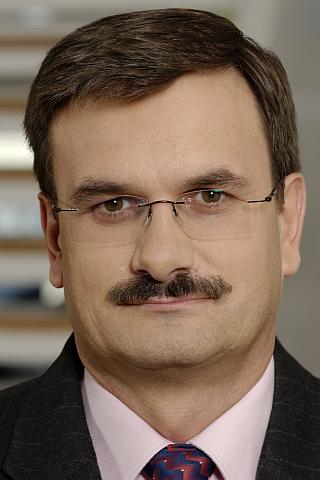
|
About the Speaker
Hr. Hans Adlkofer studied electronics with the focus on semiconductor technologies. He started his career at National Semiconductor in the marketing department with focus on ASICs for the automotive industry.
The next career step was at Giesecke & Devrient to develop secure operating system for smart cards. Thereafter he moved on to SIEMENS Semiconductor (today Infineon) where he headed an application center for Security and Smart Card ICs. Later he moved to Singapore to head the Business Operation for the Asian market.
In 2003 he took over the responsibility for the Business Unit Sensors in Infineon Technologies in order to drive the growth of Sensors in the automotive industries like radar sensors, pressure sensors, wheel speed sensors etc.
Since 2009 he is heading the System Group Activities in the automotive division of Infineon. Main function is to translate the application requirements of the automotive industry into product roadmaps, which then address the relevant application with a chipset that addresses all the requirements and pain points of the customer.
Artificial Intelligence in Radar Signal Processing, and Fusion of Radar and Camera
Noam Arkind
CTO and Co-Founder, Arbe
|

|
About the Speaker
Dr. Noam Arkind is the Chief Technical Officer and Co-founder of Arbe, the Israeli company that has developed the first high definition 4D imaging radar for advanced driving assistance systems (ADAS) and autonomous vehicles. Noam has over 10 years of experience in R&D and holds a Ph.D. in Applied Mathematics from the Robotics Lab at Weizmann Institute of Science. Prior to Arbe, Noam led the algorithm development program at Taptica, a global mobile advertising technology company, and he was responsible for the design and implementation of the control algorithms for the entire Space IL mission, including the landing procedure for the spacecraft. Since founding Arbe in 2015, Noam and his team have been developing a proprietary high-resolution radar, a revolutionary sensor capable of unlocking Level 3 and higher autonomous driving because of its ability to identify, track and separate objects in high resolution.
Testing of MIMO radar sensors
Leander Humbert
Technology Manager for radar at Rohde & Schwarz
|
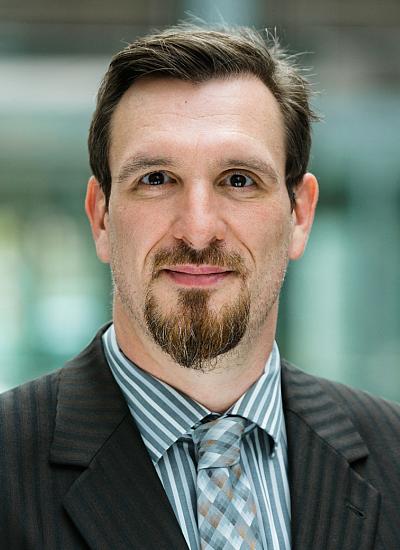
|
Abstract
Testing the robustness of radar sensors against interfering signal at the moment is quite straightforward. The transmit signal of the radar is delayed and modulated to simulate multiple moving targets from boresight. Mechanical movement of the echo generator is required to evaluate the impact of traversing targets.
With the increasing numbers of radar sensors being used and the rise of MIMO architectures this concept seems to be too limited for validation of interference mitigation techniques. Some new concepts are presented to improve the workflow of VIL tests.
About the Speaker
Leander Humbert is the Technology Manager for radar at Rohde & Schwarz. He completed his Master's Degree in electrical engineering (Diplom-Ingenieur) in 2004 at the Helmut Schmidt University in Hamburg. Between 2004 and 2011 he worked as a systems engineer for electronic warfare systems at the German Air Force. From 2012 to 2016 he was a technical counselor for missile and air defense related sensors systems at IABG. He is currently interested in all aspects of test and measurement requirements for current and future radar sensors.
Future Radar Requirements for
Automotive L4/L5 Autonomous Driving
Jürgen Dickmann
Vehicle Automation and Active Safety, DAIMLER AG
|
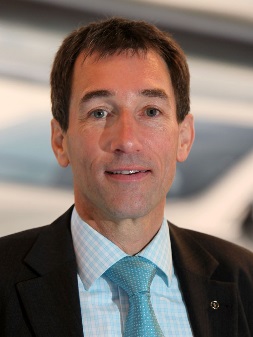
|
About the Speaker
Dr.-Ing. Jürgen Dickmann is in charge of Radar sensors and radar based perception algorithms at Vehicle Automation and Active Safety, DAIMLER AG. In this role he is responsible for research to serial development of Radar and Radar-based environmental understanding for Autonomous Driving and pre-development for all Platforms inside DAIMLER AG. Among others, he held manager positions at DAIMER in Laser-Scanner, Sensor-Fusion and Situation Analysis. He conducted radar developments for radar based Pre-Crash and driver assistant systems for all platforms (Passenger cars, Busses, Van, Truck) inside DAIMLER AG, including the new E-Class (BR213). His latest responsibility was the transfer of all (Radar, Laser, Video) environmental sensing and localization solutions for the up-coming new S-Class model (BR223). He received his Diploma degree in electrical engineering from University Duisburg, Germany, in 1984. In 1991 he achieved the Dr.-Ing. at Rheinisch Westfaelische Technische Hochschule Aachen (RWTH), Germany. In 1986 he started his career at AEG Research Center, where he did research on III/V-semiconductor processing techniques, mm-Wave devices like High Electron Mobility Transistor (e.g. HEMT/PHEMT) and MMIC-design up to 94GHz.
Urban Air Mobility – How microwaves will
enable 3-D travel in cities
Volker Ziegler
Head of Department “Communication Technologies” within Airbus Central Research and Technology
|
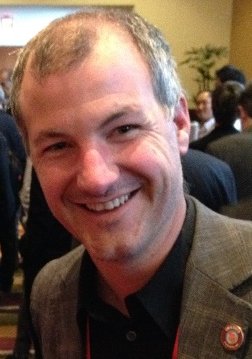
|
About the Speaker
Volker Ziegler received his Dipl.-Ing. degree in electrical engineering and his Dr.-Ing. degree (with honors) both from the University of Ulm, Germany, in 1997 and 2001, respectively. From 2002 to 2003, he was member of the "Knowledge Exchange Group for Research and Technology" at the DaimlerChrysler AG in Stuttgart, Germany. During this trainee period, he was working at the University of Michigan, Ann Arbor, USA and at United Monolithic Semiconductors, Orsay, France. Afterwards, he joined EADS Innovation Works, Ottobrunn, Germany, where he became an EADS Expert for "Microwave Technologies and Systems" in 2007. From 2013 to 2017, he was the Team Leader for “RF and Waveforms” as well as for “Automatic Flight Systems” and Ho Dept. “Automatic Flight and Communications”. Since 2018, he is the Head of Department “Communication Technologies” within Airbus Central Research and Technology, responsible for the advanced research performed in the field of RF and optical communication systems for aeronautic and space-borne platforms.
Volker Ziegler is senior member of the IEEE, member of the IEEE MTT-S Technical Coordinating Committee 21 on RF-MEMS, member of the IEEE MTT Antennas & Propagation German Chapter Executive Board and the VDI ITG focused group on microwave technologies. He authored or co-authored more than 100 papers, holds 15 patents and is an industrial advisor of the "Component Technical Board on Microwaves" for the European Space Agency.
A Study of Object Recognition using 79 GHz 3D Imaging Radar and Its Applications
Junji Sato
Panasonic
|

|
Abstract
We have been developed the three-dimensional (3D) scanning radar using 79 GHz band. Conventional millimeter-wave radar has an issue in the accuracy of vertical detection. We realize three-dimensional scanning technique with high angular resolution in the limitation of the number of antennas by using the unequally spaced MIMO array architecture. It enabled tracking detection of object moving in free space and imaging of pedestrians in poor visibility such as snow storm, fog, and dust. In addition, we introduce the method for generating the advanced occupancy grid mapping (OGM) by using the 3D Radar.
About the Speaker
Junji Sato received the B.S. and M.S. degrees in electrical and electronic engineering from Tokyo Institute of Technology, Tokyo, Japan, in 1997 and 1999, respectively. In 1999, he joined Panasonic Corporation, Japan, where he has been engaged in research and development of active antenna on microwave and millimeter-wave. Since 2007, he has designed millimeter-wave integrated circuits and antennas on CMOS process for wireless communication and radar applications.
Radar system development for autonomous driving, air mobility and IoT
Zongbo Wang
CEO and Co-Founder, Ainstain
|

|
About the Speaker
Dr. Zongbo Wang is the co-Founder and CEO of Ainstein ( ainstein.ai ). He honed his expertise by leading and contributing to numerous large scale research projects at universities and research institutes in China, the United States, Spain, Singapore and the Netherlands.
He received his B.S and Ph.D. in Electronic Engineering from the Beijing Institute of Technology, in 2004 and 2009, respectively. In 2007, he was with the Group of Microwave and Radar (GMR), Universidad Politecnica de Madrid, Madrid, Spain. From 2009 to 2011, he worked in the International Research Centre for Telecommunications and Radar (IRCTR) at the Delft University of Technology, Delft, The Netherlands. He joined the Institute of Microelectronics, Agency for Science, Technology and Research (A*STAR), Singapore, in 2011, and later joined the Faculty of the Department of Electrical Engineering, Dalian University of Technology, Dalian, China. In 2013, He joined the Center for Remote Sensing of Ice Sheets (CReSIS), University of Kansas, Lawrence, KS, USA.
From 2015, Dr.Wang started to work on the commercialization of radar technologies, with the vision to define the future of flying and driving with innovative sensing system, processing and control technologies. Dr.Wang and his team have been well recognized as the leading innovator in developing the collision-avoidance radar, radar altimeters, FPGA-based flight controllers for drones and UAVs, and advanced automotive radar systems for ADAS and self-driving cars.
Multimode Hybrid Analog and Digital Radar for Highly Automated Operation
Maha Achour
Metawave Founder & CEO
|
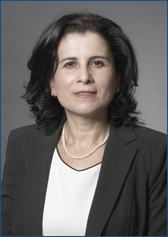
|
Abstract
There is critical need to increase automotive sensors’ operating maximum ranges while optimizing angular resolution in most weather and operating conductions. This leads to the necessity to include an Analog Beamsteering functionality in Automotive 77GHz Radars. In the defense sector, almost all radars are based on expensive analog phased array radar technologies at frequencies because of their robustness and accuracies. In general, analog beamforming and steering have been implemented across most communication radios to overcome higher propagation losses in mm-wave frequency ranges, yet today’s almost all Automotive Radars are based on Digital Beamforming or MIMO concepts.
In radars, analog offers better SNR to reach longer Ranges, low probability of false alarms, robust performance with less susceptibility to noise or jammer, and lower computation compared to complex MIMO only algorithms in the digital domain. In this presentation we will share the results of the first electronically steerable analog phased array front-end radar and discuss its combination with “MIMO Like” algorithms for smaller sizes, faster frame rate, and higher angulate resolutions at long ranges.
About the Speaker
Maha is a senior leader with more than 20 years’ experience in both public and entrepreneurial start-up companies in the RF, wireless, optics and networking industries. She has a demonstrated track record of developing an idea from basic concept to product, delivering industry leading technologies, building teams and companies.
Her strong technology background combined with leadership, business and marketing skills enabled her to tackle challenging problems across multiple industries. Previously, Maha served as co-founder and CTO of Rayspan, where she commercialized the first Metamaterial antennas and RF front-end subsystems for the cell-phone and WLAN industries. She has also pioneered the first broadcast HDTV system over satellite, mm-wave/Free-Space Optical systems for last mile connectivity, and led various DARPA projects in wireless MIMO and Optical devices. Dr. Achour holds a doctorate degree in Physics from Massachusetts Institute of Technology (MIT), and she completed the Master Degree Program in Wireless Communication Theory and Systems, at University of California at San Diego (UCSD). She has authored over 30 publications in electrical engineering and physics and holds more than 60 granted patents and over 100 pending applications.
Radar Technology for Assisted and Automated Driving
Frank Gruson
Continental Autonomous Mobility and Safety (AMS)
|
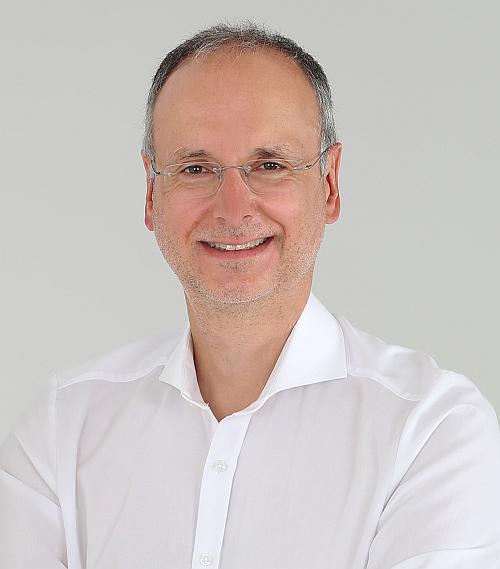
|
Abstract
Automotive Radar technology was launched in 1999 as a comfort functionality for luxury vehicles (adaptive cruise control). The democratization of automotive radar sensors started in 2014 with the introduction of emergency braking to the European NCAP (new car assessment program) rating scheme. EuNCAP led to a tremendous increase in sensor sales and a steep decline in price tags.
Today - 20 years later - autonomous driving is on the horizon as the next "big wave" in technology. While L2 and L2+ systems will be based on available "EuNCAP" sensors, L3 systems and beyond require a disruptive change in sensor architecture and radar technology.
This presentation will provide an outline about
- The evolution of sensor technology over the last 20 years
- The harmonization in frequency bands and output power levels worldwide as a driver for low-cost, high-performance sensors
- The enhanced requirements of automated vehicles compared to classical NCAP scenarios for front and side radar sensors
- Architectural considerations and waveforms to realize radar sensors with highest performance at reasonable cost for the radar sensor itself and in combination with camera or lidar
About the Speaker
Frank Gruson is Head of Advanced Engineering Radar at ADC Automotive Distance Control Systems GmbH (a Continental Company) in Lindau/Germany. Since 2007 he has served Continental in numerous positions in the area of RF development and systems engineering. Frank is strongly engaged in the worldwide harmonization of frequency spectrum for automotive radar sensors, both on European level (ETSI) and on international level. Frank contributed to several sucessfull funded research projects on EU and BMBF level, such as KOKON, RoCC, MOSARIM, SafeMove and IMIKO.
Prior to joining Continental, Frank was active in semiconductor technology, RF chipset design, application engineering and marketing in the semiconductor business and in the Research Center of the Daimler AG in Ulm. Frank received his masters degree in Physics from the University of Ulm in 1994 and his PhD in Electrical Engineering in 2010.
Challenges and Solutions of Advanced Automotive Radar Design
Riccardo Giacometti
Keysight
|

|
Abstract
Advanced automotive radars with millimeter-wave frequencies and wide bandwidth are now an indispensable part of Advanced Driver Assistance Systems (ADAS) and autonomous driving vehicles. This workshop will review advanced automotive radar design challenges including verification of unique radar waveform designs, high resolution target scenarios, transmit and receive MIMO antennas, while taking into account MMIC circuit-level effects such as thermal and phase noise, nonlinearities, impedance mismatch and more. You will hear how Keysight automotive solutions can help you overcome these design challenges through simulation in research and development (R&D) before going to prototype.
About the Speaker
Riccardo Giacometti graduated in Electrical Engineering from University of Florence, Italy. In 1992 he joins Hewlett Packard in Santa Rosa (CA) as an Application Engineer and successively as Product Manager for the EEsof EDA division of HP. In 2004 he moves to France to become EMEA Market Development Manager for Agilent EEsof EDA and then for the Signal Sources Division of Agilent Technologies. Since 2011 he works as an EDA Application Engineer at Keysight Technologies.












